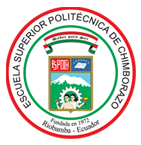APPLICATION OF COMPOSITES PHOTOCATALYSTS FOR THE DEGRADATION OF P-NITROFENOL IN WATER
DOI:
https://doi.org/10.47187/perf.v2i20.37Keywords:
p-nitrofenol, photocatalytic degradation, activated carbon, titanium dioxide, compositeAbstract
The environmental responsibility forces us to look for adequate ways to treat contaminated watewater by organic compounds and provide alternatives to the generator industries. Therefore, this work is based on the degradation of p-nitrophenol (PNF) applying tio composites on activated carbon (CA/TiO). The photocatalyst was supported on carbon powder (CA1) and carbon in flakes (CA2) which are called composites in order to recover it. the compounds were characterized with ir spectrum and electronic scanning microscope. the degradation of the pollutant was evaluated with a UV-visible spectrophotometer. A UV light (λ = 365 nm) was used to irradiate the reactor and H2O2 was used as an oxidizing agent throughout the whole process time. Once the different trials have been studied using a completely randomized experimental design, it was observed that the combina tion of CA1 shows a high efficiency (99.1%) of removal of PNF in a concentrated aqueous solution (250mg.l-1) in an average time of 80 minutes. thus, CA2 presents a minor removal (50.46%) in an 80 minutes treatment. It might be concluded that CA1 presents a better complexation and efficiency in the PNF degradation.
Downloads
References
Borras C, Berzoy C, Mostany J, Scharifker BR. Efecto de la concentración inicial y el potencial de electrodo sobre la cinética de oxidación y la eficiencia de mineralización del p-nitrofenol sobre electrodos de sb-sno 2. 2006; xviii(1).
Foo KY, Hameed BH. Decontamination of textile wastewater via tio2/activated carbon composite materials. adv colloid interface sci [internet]. 2010;159(2):130–43. available from: http://dx.doi. org/10.1016/j.cis.2010.06.002
Rodriguez-Narvaez OM, Peralta-Hernandez JM, Goonetilleke A, Bandala ER. Treatment techno- logies for emerging contaminants in water: a review. chemical Engineering Journal. 2017.
Shaoqing Y, Jun H, Jianlong W. Radiation-induced catalytic degradation of p-nitrophenol (pnp) in the presence of tio2nanoparticles. Radiat phys chem [internet]. 2010;79(10):1039–46. Available from: http://dx.doi.org/10.1016/j.radphyschem.2010.05.008
Rodrigues CSD, Soares OSGP, Pinho MT, Pereira MFR, Madeira LM. P-Nitrophenol degradation by heterogeneous fenton’s oxidation over activated carbon-based catalysts. appl catal b Environ [internet]. 2017;219:109–22. available from: http://dx.doi.org/10.1016/j.apcatb.2017.07.045
Selishchev DS, Kolinko PA, Kozlov D V. Influence of adsorption on the photocatalytic properties of tio 2/ac composite materials in the acetone and cyclohexane vapor photooxidation reac- tions. J photochem photobiol a chem [internet]. 2012;229(1):11–9. available from: http://dx.doi. org/10.1016/j.jphotochem.2011.12.006
Barrera-Díaz C, Cañizares P, Fernández FJ, Natividad R, Rodrigo MA. Electrochemical advanced Oxidation Processes: An Overview of the Current Applications to Actual Industrial Effluents. chem soc J mex chem soc. 2014;
Byrne C, Subramanian G, Pillai SC. Recent advances in photocatalysis for environmental applications. J Environ chem Eng [internet]. 2017;(July):0–1. available from: http://dx.doi.org/10.1016/j. jece.2017.07.080
Martins Ac, Cazetta AL, Pezoti O, Souza JRB, Zhang T, Pilau EJ, et al. Sol-gel synthesis of new tio2/activated carbon photocatalyst and its application for degradation of tetracycline. Ceram int [internet]. 2017;43(5):4411–8. Available from: http://dx.doi.org/10.1016/j.ceramint.2016.12.088
Ouzzine M, Romero-Anaya AJ, Lillo-Ródenas MA, Linares-Solano A. Spherical activated car bon as an enhanced support for tio2/ac photocatalysts. carbon n y. 2014;67:104–18.
Asiltürk M, Şener Ş. TiO 2-activated carbon photocatalysts: Preparation, characterization and photocatalytic activities. chem Eng J. 2012;180:354–63.
Brienza m, Katsoyiannis IA. Sulfate radical technologies as tertiary treatment for the removal of emerging contaminants from wastewater. sustain. 2017;
Liang C, Liu Y, Li K, Wen J, Xing S, Ma Z, et al. Heterogeneous photo-fenton degradation of orGanic pollutants with amorphous fe-Zn-oxide/hydrochar under visible light irradiation. sep purif technol [internet]. 2017;188:105–11. available from: http://dx.doi.org/10.1016/j.seppur.2017.07.027
Zhang J, Huang ZH, Xu Y, Kang FY. Carbon-coated TiO2 composites for the photocatalytic degradation of low concentration benzene. xinxing tan cailiao/new carbon mater [internet]. 2011;26(1):63–70. available from: http://dx.doi.org/10.1016/s1872-5805(11)60067-x
Koyuncu H, Yildiz N, Salgin U, Köroĝlu F, Çalimli A. Adsorption of o-, m- and p-nitrophenols onto organically modified bentonites. J Hazard Mater. 2011;
Zhang CL, Yu YY, Fang Z, Naraginti S, Zhang Y, Yong YC. Recent advances in nitroaromatic pollutants bioreduction by electroactive bacteria. Process biochem [internet]. 2018;(march):0–1. Available from: https://doi.org/10.1016/j.procbio.2018.04.019
Silva Vargas ME. Preconcentracion selectiva de fenoles contaminantes prioritarios y determi- nación por espectrofotometría uv-visible, cromatografía líquida de alta eficacia y cromatografía de gases/espectrometría de masas. Universidad complutense de Madrid; 2000.
Awfa d, Ateia m, Fujii m, Johnson ms, Yoshimura c. Photodegradation of pharmaceuticals and personal care products in water treatment using carbonaceous-tio 2 composites: a critical review of recent literature. Water res. 2018;
Zhang J, Zhou P, Liu J, Yu J. New understanding of the difference of photocatalytic activity among anatase, rutile and brookite tio2. Phys chem chem phys. 2014;
Devi LG, Anitha BG. Exploration of vectorial charge transfer mechanism in tio2/srtio3com- posite under uv light illumination for the degradation of 4-nitrophenol: a comparative study with tio2and srtio3. Surfaces and interfaces. 2018;
Murillo HA. Obtención de un composito de dioxido de titanio y carbon activado a la oxIdación fotocatalítica del ión cianuro. 2015; 205. Available from: https://www.google.com.ec/ search?q=Extracción+del+titanil+sulfato+del+mineral+ilmenita+y+su+evaluación+en+la+es- terificación+del+ácido+oléico. &oq=Extracción+del+titanil+sulfato+del+mineral+ilmenita+y+- su+evaluación+en+la+esterificación+del+ácido+oléico. &aqs
Altaher H, Dietrich AM. Characterizing o- and p-nitrophenols adsorption onto innovative activated carbon prepared from date pits. Water sci technol. 2014;
Downloads
Published
How to Cite
Issue
Section
License

This work is licensed under a Creative Commons Attribution-NonCommercial 4.0 International License.


























